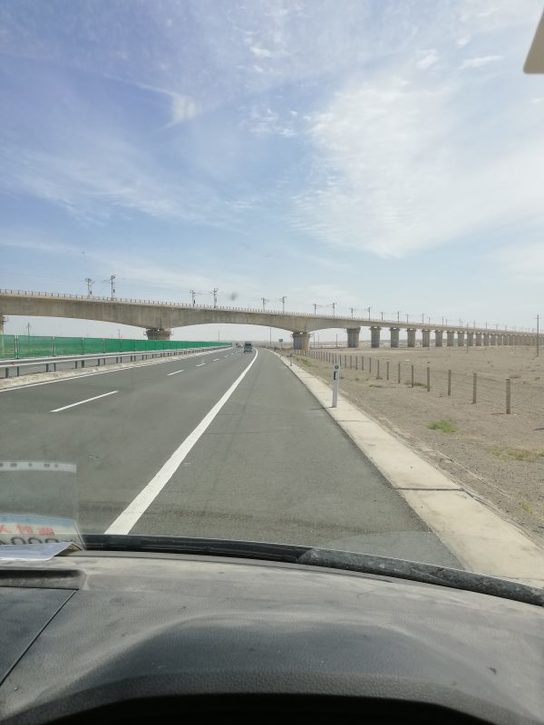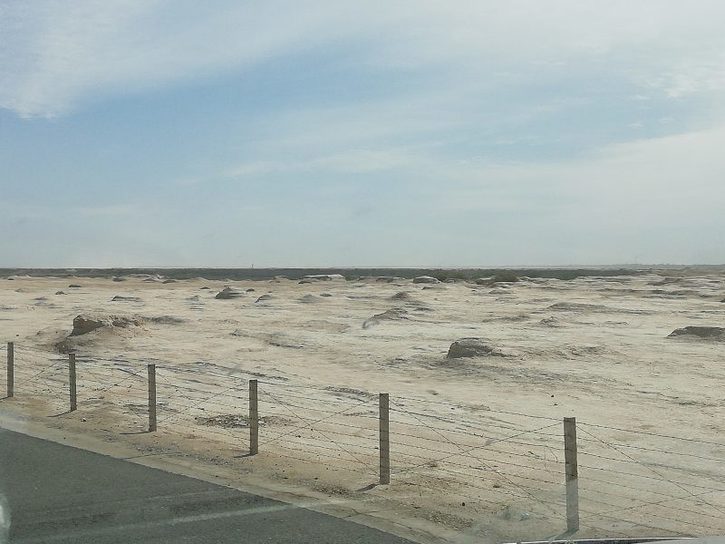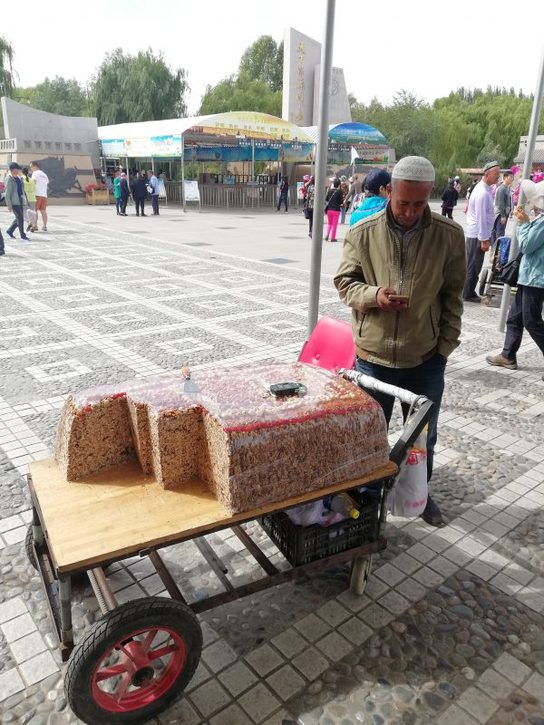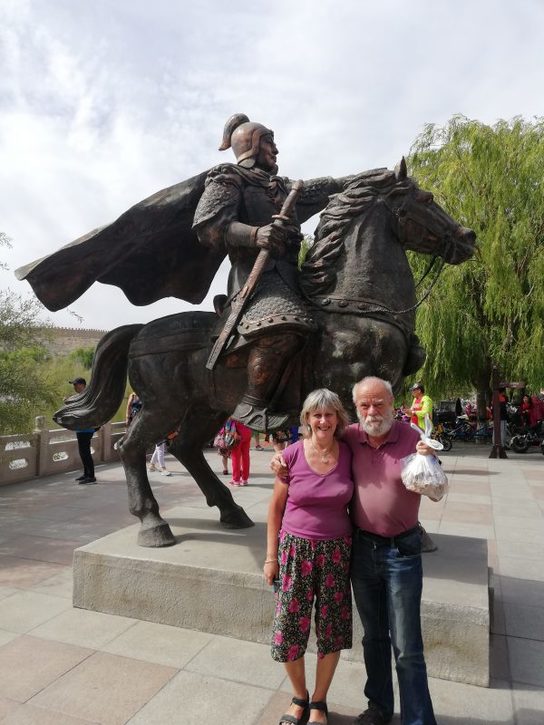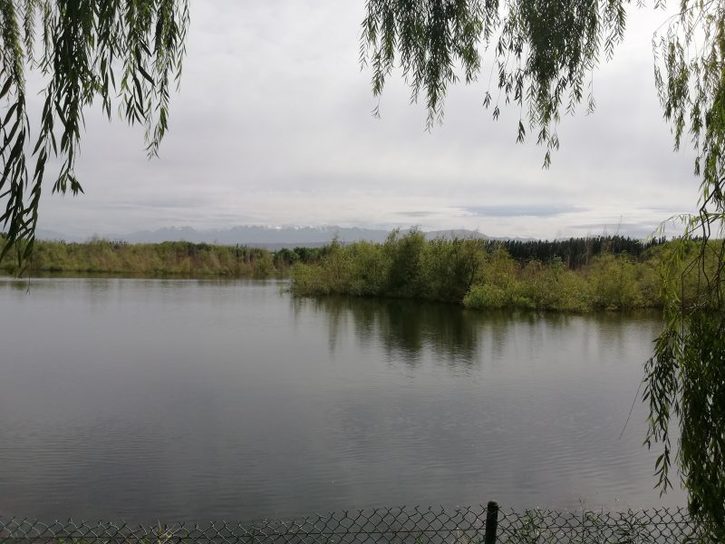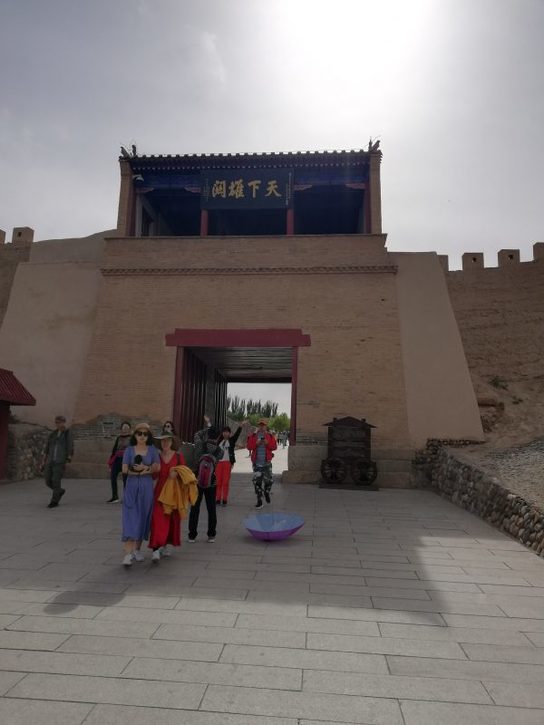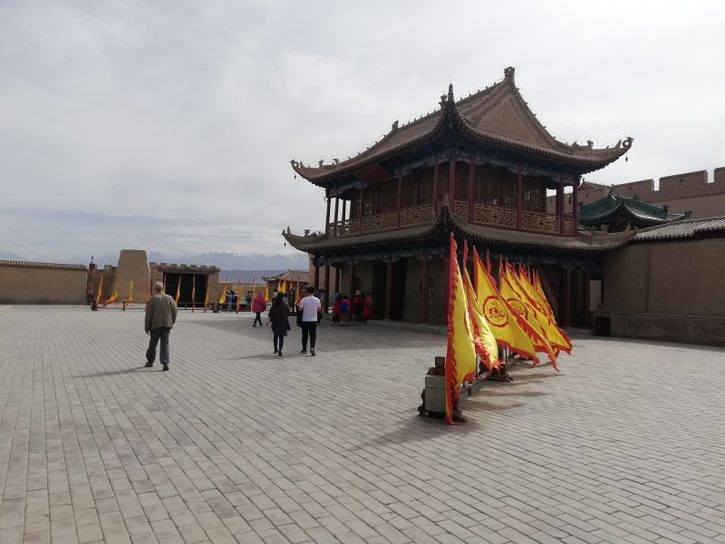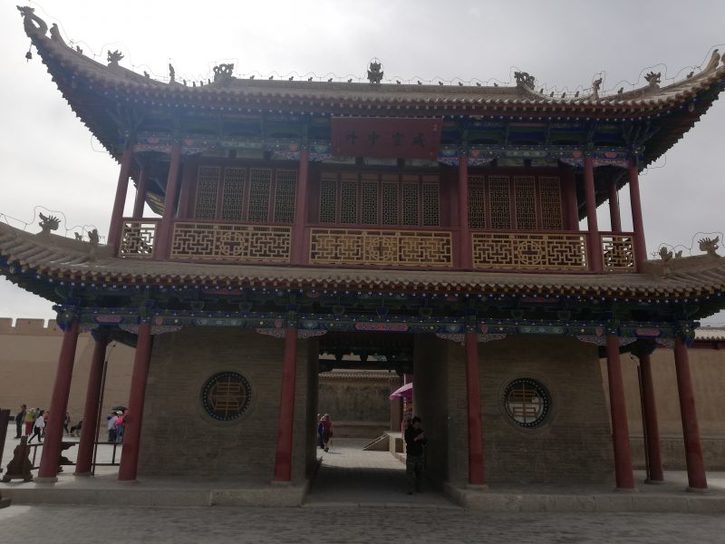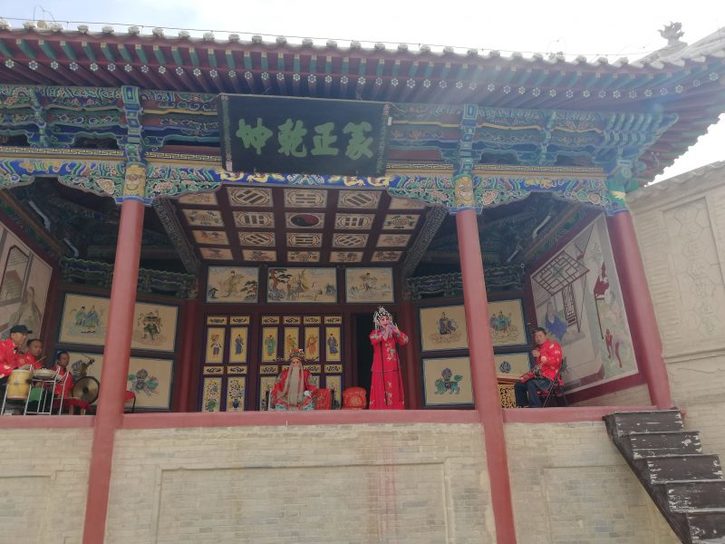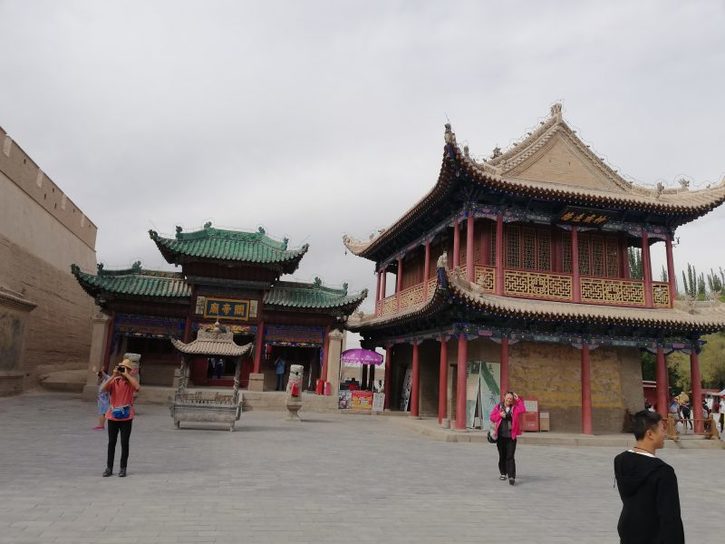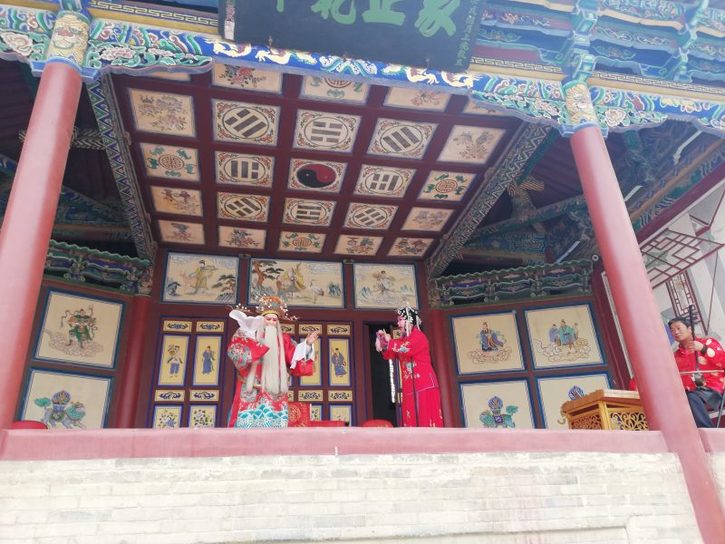A drive of 240 miles to Jiayuguan, the western end of the Great Wall, passed through arid desert with frequent oases, some of which like Guishanan, were very large and were planted with vines, maize, vegetables and flowers. The flowers are grown for the production of cosmetics, medicines and herbal tea. We passed under the railway line built specially to carry the Bullet Train from Urumchi to Beijing.
Jiayuguan is the western end of the Great Wall and has a large fort. The Gobi Desert book begins with a description of the fort and the West Barbican through which the camel caravans passed, and through which criminals were expelled from China and expected to survive in the small oases where the Silk Road travellers were able to feed themselves and their animals. Mildred Cable described how they passed through the arch, refused to be persuaded by soldiers to turn back, climbed a steep hill (see pic) and surveyed the desert with a degree of alarm. The steep hill is now paved and, at its top, camels are waiting patiently for tourists to take a ride. The vista of the Gobi is crossed by power lines.
The fort has rooms which originally housed the officials which have been reproduced by life-sized figures. There was a stage on which musicians were playing and a woman singing traditional Chinese songs, and a wide area in which a play, “The Marriage of the Princess” was being staged. It was all rather Disneyland.
In the evening we camped in a car park by the “Overhanging Great Wall” which is a reproduction of the Great Wall stretching up a mountainside. We climbed it to the top and then ate a delicious meal cooked by Mathieu and Melody
